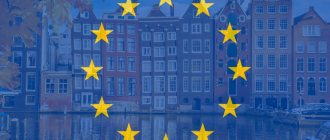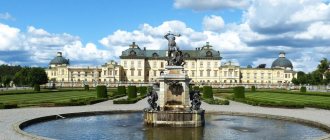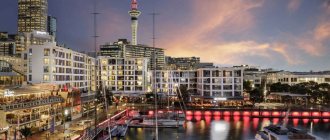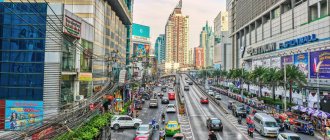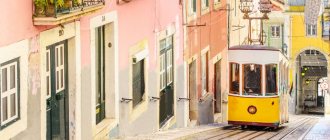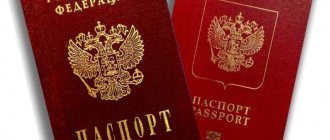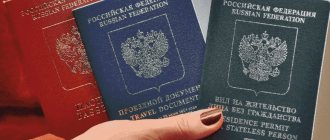The best place to immigrate to the Netherlands is Amsterdam. There is an indescribable atmosphere inherent in a modern large city: the operation of a huge airport, a smoothly functioning public transport system, a developed trade sector, as well as services, recreation and education. Immigration to Holland for many people becomes a salvation in the current crisis situation in the world.
But recently, in order to move to this country, you need to pass a test in the form of an integration exam, the cost of which is 350 euros. You can get a residence permit in Holland by coming to study or work, or run your own business. Permanent residence will appear only after 5 years of continuous stay in the country. Let's consider all the conditions in more detail.
Immigration conditions
Wealthy people who do not need to provide social assistance to the state have the greatest chance of getting a residence permit.
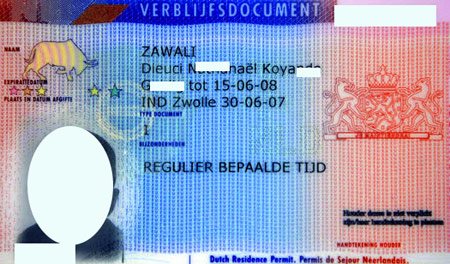
Dutch residence permit card
Basically, you can immigrate to Holland in the following ways:
- Through a close relationship over a long period of time (three years) with a citizen of the country, and it is not necessary to have a marriage registration;
- Having lived in the Netherlands for five years or more;
- Running your business successfully;
- Having received refugee status;
- Getting an education in Holland.
If immigration to the Netherlands takes place through marriage, then in this case it is not necessary to stay in the country continuously for three years. But it is prohibited to have dual citizenship, except for those whose spouse is himself a Dutch citizen.
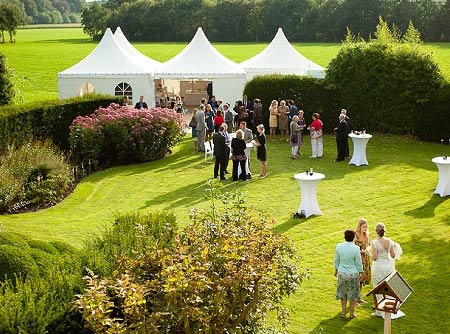
New rules
Those wishing to immigrate to Holland receive civic integration knowledge and pass an exam before arriving in the country. It will include watching a film showing footage of homosexual relationships and a nudist beach. This is emphasized because this is the norm for Holland. Next, at the Dutch Embassy you will need to take a test on your language proficiency in the country.
The residence permit can be used for one, three or five years, with the possibility of extension subject to good behavior. After these years, you can apply for Dutch citizenship or an indefinite residence permit.
There are requirements for visitors
— it is important to undergo testing for tuberculosis within 3 months and take out health insurance for four months after arrival;
- the process of integration into the local society. Its beginning starts in the Motherland. It is approved for persons between the ages of eighteen and sixty-five, if they successfully pass the Dutch language proficiency exam. Prepare yourself, perhaps using the specialized program “Naar Nederland”, and register for the exam on the IND website.
In addition to proficiency in the Dutch language, it is important for a citizen to show his own awareness of the functionality of public state institutions, the specifics of the national labor market, and politics.
Obtaining an integration diploma will be required within three years from the date of entry into the Kingdom. Otherwise, you will face penalties or cancellation of your residence permit.
The easiest way to obtain a residence permit in the Kingdom is a trip for the purpose of education and further employment. The advantage is great! With high knowledge, you will be torn off with your arms and legs.
Purchasing real estate in the Netherlands is not a reason for automatic issuance of a residence permit. It's just an investment.
Emigration to Holland through marriage
A marriage may have an official status and not be marked. In addition, permanent residence in the country is not necessary in this case. You will need to be present at the time of submitting your application for citizenship. But not everything is as simple as it seems at first glance.
The validity of long-term intimate relationships will be checked by the authorities. They take place in the form of numerous surveys, tests, comparison of information, study of all the details, even small ones. In the case of an unregistered marriage, there is one important nuance: if partners separate after receiving permanent residence, the citizen will be required to leave the country.
Obtaining permanent residence after five years of living in the country
Permanent residence in Holland becomes a reality after five years of stay in the country. But before you go to live there, it’s worth visiting the state as a tourist to get an idea of it.
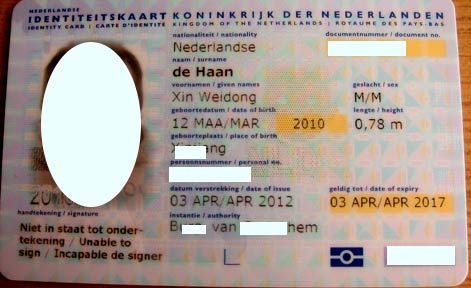
Dutch Citizen Identification Card
The main condition due to which residence will be considered continuous is the annual receipt of a residence permit. If this is not done at least once, the applicant leaves the country and starts all over again. And the next time you arrive in Holland, the countdown of five years will begin again.
In principle, nothing complicated, the main thing is not to miss the time to apply for a residence permit and comply with the laws of the country. Sometimes, once you go to earn money, you may want to stay there forever. And this is another opportunity to realize your desire.
Applying for a residence permit for work
A residence permit is available to anyone who comes to Holland to earn money. Moreover, a work visa to the Netherlands is issued to some specialists and seasonal workers according to a simplified scheme. But each specific case is considered individually, taking into account the level of education, language proficiency, professionalism and demand for a particular specialty.
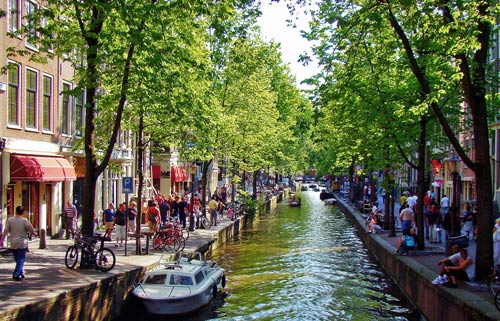
In this case, a residence permit is issued only if there is a specific employer who wishes to hire a person.
The minimum salary level should be:
- For those under 30 years old - 35,000 euros per year;
- Employees who are older than this age have 48,000.
Immigration to the Netherlands is also possible if you open your own business there. The main thing here is to have enough funds to implement this event and experience, which is recorded in an official document (diploma or transcript).
A sufficient stable income will be considered 1000 euros monthly for a year. In this case, it will be possible to obtain a residence permit after this period.
You can also purchase real estate in Holland for running a business, and at the same time make a profitable investment.
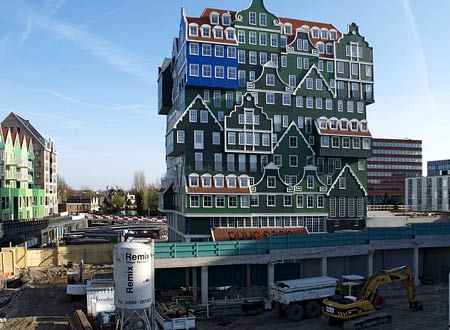
Construction of a new hotel Zaandam in the city of Zaandam
It falls under state protection (the law on foreign investment and private property of foreigners) and allows you to obtain a European multiple visa.
It is important to know: purchasing real estate in the Netherlands to obtain residence permit status does not provide any additional grounds.
It is possible and necessary
One of the main problems of immigration in the Netherlands, as many of our compatriots believe, is the need to clearly comply with the ideas of the responsible government authorities about what kind of foreign citizens this country needs. The country will not welcome someone who is not ready to communicate in the internal language; they do not welcome people who try to limit the freedom of others, so hostility towards nudists or gay people who are officially married is a reason to refuse to move to these places. The local population has recently increasingly spoken out against immigrants, which is why the authorities are forced to adopt new, stricter laws and restrictions. In total, according to experts, there are currently about 600 thousand people officially living in the Netherlands who are unable to speak the local language. Most of them are unemployed. This is considered the basis for refusing to accept new people who are not ready for social integration.
Nowadays, emigration to the Netherlands is available to those who are ready to expand their horizons and recognize the rights of others. However, the language proficiency test can be taken in advance. Such checks are regularly organized for interested parties at the country's consulates. But once in place, you will have to pass a test for social integration. One of the parts of the exam is showing applicants a film about the life of nudists and personal relationships in same-sex marriages. The work, which is a must-see for all potential immigrants, places particular emphasis on the fact that such paintings are everyday life, and anyone who is not ready to fit into it is not welcome by society.
Immigration as a refugee
Going to live in Holland as a refugee is a popular and sought-after method. But the authorities treat this category quite carefully. This becomes possible if there is a danger of losing life, health, or there is some kind of ethnic or sexual oppression.
The last problem will most likely cause a response from immigration services due to their friendly attitude towards sexual minorities. Another point for a positive answer will be the problem with criminal persecution.
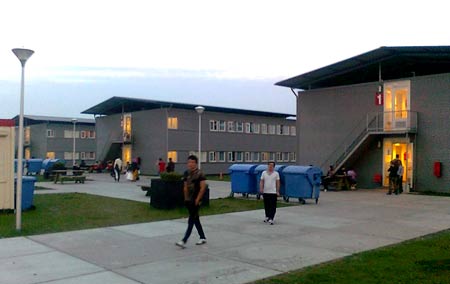
Refugee camp in Holland has decent living conditions
If the motive is religious or political, then the process of obtaining a residence permit and permanent residence may take 6 months or even two years. And all this time you will have to live in a special camp.
In order to obtain such status, you must ask for asylum at the border control upon arrival at the airport. A person involved in these issues will be invited to tell his story.
But if the situation improves in the country from which the immigrant came, a return will follow. This status gives permission to live in the country and study. It is also possible to apply for family reunification to live in the Netherlands.
“Sex and drugs are for tourists”
The capital of the Kingdom of the Netherlands is often stereotyped: drugs, corrupt love and tulips. But if you look beyond the tourist templates of Amsterdam, you will see a city with a rich history, peculiar laws and a manic passion for football. Continuing the series of articles about Russians living abroad, Lenta.ru publishes a story by Alexey Kureev, who recently left for the Netherlands.
How did I get the idea to leave Russia? It probably all started with the desire to travel the world, to see how people live in different countries. On one of the IT-related websites, I met a Russian who at that time lived in the States. We got to talking, and he suggested that I try to find a job there, and suggested several sites where I could post my resume. They don’t beat you up for asking, so I thought, why not? This was a year and a half ago, I was 23 then.
Although my girlfriend and I initially thought of going to the USA, fate decreed otherwise. I posted my resume on Monster.com, and the very next day two people called me - one recruiter from Berlin, the other from the Netherlands. I then thought: “Damn it, now I have to speak English with some people who may offer me a job.”
After the conversation from Berlin, the answer never came, but I had three more interviews with Holland via Skype. Eventually, they made me a job offer.
The test task that was sent to me was an order of magnitude easier than those that we have in Russia. To be honest, this surprised me a little.
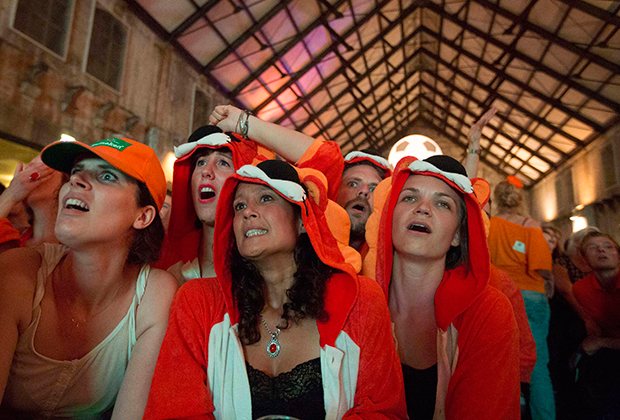
The Dutch watch the 2014 FIFA World Cup match, the Netherlands team plays against the Argentina team
Photo: Cris Toala Olivares/Reuters
In the Netherlands, there is a great interest in IT workers from Eastern Europe for one simple reason: their country simply does not have similar personnel of its own. At one time, engineers were cultivated in the USSR, which made it possible to create a strong school, the legacy of which we still use today. Being an engineer is popular today both in Russia and in the countries of the former Soviet Union. In the Netherlands, people choose the professions of historians, doctors, designers and others not related to the exact sciences.
At the same time, the learning process in Holland is more relaxed. For example, you study at the university for two years, then you get tired of it, you take an academic year and go see the world, look for yourself... Then you come back, finish your studies or move to another university. On average, people here study until they are 25-27 years old; it is normal to come to work at this age without experience and get a job as an intern. In Moscow, by the age of 25, you can have five years of experience and a good salary.
I studied to become an aircraft design engineer for upper stages - that is, in theory, I was supposed to build rockets. But I know our salaries and what I can qualify for in Russia within the framework of my specialty. I would earn more as a sales manager in some electronics store than as a rocket designer. As a result, I looked at the situation from the outside and saw that everyone needs programmers. The demand for them is now hellish, even despite their abundance on the market.
This is actually why there are so many foreign programmers in the Netherlands. People with other professions are rarely invited here.
The move was carried out in the style of “head over heels”. But I always knew that I could come back. I’ll go and try, if it doesn’t work, I’ll come back. My family supported me in this decision.
I got my work visa in a month. When I arrived, I was issued a residence permit for five years. A month later they did the same for my girlfriend - according to the law, you can take any person with you. It doesn't matter who it is or what kind of relationship you are in. You say to those who are preparing your documents: “This is my partner, I want to live with this person.” He or she receives a residence permit only because you received it.
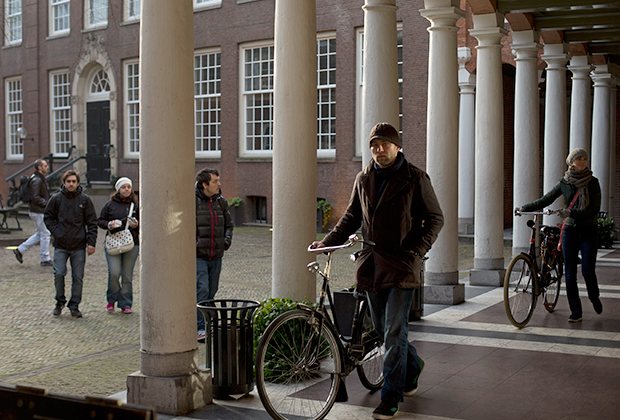
At the Amsterdam Museum, January 2014
Photo: Peter Dejong/AP
My Anya works as a tester - she checks the functionality of sites. At first, in Holland, she worked remotely for a company in Moscow, but later she got bored of sitting at home and wanted to communicate with people. She put together a resume on a local job search site and was soon found by recruiters. Then everything went like clockwork: Anya went for her first interview at the company, where she was hired.
I am now working for a different company - not the one that initially invited me to the Netherlands (which soon went bankrupt). But, as it turned out, there is a very good program to protect workers. If your employer says they are bankrupt, the state takes over all responsibilities for running that company. Employees are paid their full salary for three months without deduction of taxes, and if you do not find work during this time, payments may continue for some time. In my experience in Russia, when a company goes bankrupt, they simply tell you “from tomorrow you won’t work here.” This is how the guarantee system works in the Netherlands in case your employer tells you to live long.
There is a shortage of land in Holland, so the authorities are draining offshore areas to make “new land” in their place. On one of these new islands - Ijburg - we rent an apartment for about 950 euros for 62 square meters. But at the end of November we are moving into our own apartment, which we took out a mortgage. The new housing is part of a cooperative for which we will pay approximately 100 euros per month. For this money you get insurance: if your glass breaks, a pipe bursts, or something else happens to your home, a technician will come to you and fix everything for free. In private homes, this practice, as a rule, does not exist.
When buying an apartment, we used the services of an intermediary: he helped us get the most convenient mortgage conditions from the bank, found us a suitable option and solved a bunch of other problems that we simply didn’t have time for. This service costs about three thousand euros, but for this money the intermediary resolves all issues for you - he is like your personal concierge when buying real estate. Even though we are not Dutch citizens, buying an apartment was not a burdensome matter for us. Almost all bureaucratic matters in Holland are done through someone; here, few people do it themselves.
If you are a subject of this kingdom, you have what is called a “national mortgage guarantee.” The bottom line is that when you are unable to close a loan, the government does it for you. There are other preferences that do not apply to migrants.
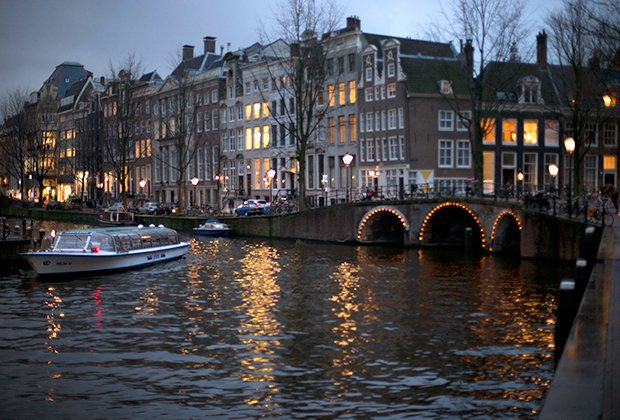
Tourist boat on a canal, Amsterdam
Photo: Peter Dejong/AP
Given my position as a foreign worker and tax benefits, the bank was loyal to me, and we were able to get a mortgage. The state does not prevent foreigners from purchasing real estate.
As a foreign specialist, I have several bonuses, one of them is a 30 percent income tax discount for eight years. Tax in the Netherlands is progressive and depends on how much you earn. The first 55 thousand euros you earn in a year are taxed at 32 percent. Anything over 55 thousand is covered by 52 percent tax. If you get a big salary, you pay big taxes.
There is a consolation: compared to Russia, you see where this money goes. If you have to go to some clinic, you don’t have to waste energy, time and money trying to find a “good doctor.” Here they will do everything for you free of charge and with high quality - because doctors receive a good salary from your taxes.
At first, we missed a number of Russian products that simply weren’t available here. For example, for sour cream. About a year later, we found its closest analogue - Turkish yogurt (Turkish yogurt). But the avocado here is like a cucumber in Russia. I had to get used to the peculiarities of food, but now there are no problems with it.
Here everyone is trying to monitor their health and blood sugar levels. People run in any weather. In general, they are a healthier nation, it seems to me. This is captivating; I also want to strive to make my life healthier. We don't run, but we ride bikes - this part of the Dutch lifestyle was the easiest to get used to.
Having pedaled in the morning, you arrive at the office completely awake and warmed up. I get to work in about 15 minutes - Amsterdam is small, there are many bike paths and other amenities for cyclists.
There are special long bicycles for those who travel with children - there is a holder for various bags at the back, and a “basket” for children at the front. It's comfortable and looks very cute.
Having a car here is very expensive: it costs a lot in itself, plus you pay a lot of taxes, insurance, and gasoline prices are quite high. We can say that a car here is a luxury. The exception is Tesla electric cars: they have a low tax, since they do not pollute the air, and special parking for recharging such a car is much cheaper than regular parking for standard cars. By the way, on some streets you cannot park your car for free near your house; you have to buy a space.
Public transport runs like clockwork. If the tram is, say, two minutes late, people at the stop start to get nervous, call someone and ask what happened. By the way, according to the law, if an employee lives more than ten kilometers from work, the employer is obliged to compensate him for travel expenses.
Another interesting point: all Dutch people are football fans. For example, if your travel time takes more than 15 minutes, you will definitely come across at least one free football field along the way. And it will be a high-quality, professional field. The state pays a lot of attention to this.
The red light district is such a calling card of Amsterdam. Here you can drink, smoke weed and watch girls. The main contingent of this area are tourists, for whom this is a kind of attraction. The Dutch themselves are too worried about a healthy lifestyle to hang out in coffee shops (cafes that have permission to sell hemp and products made from it - note by Lenta.ru
). But the Turks, of whom there are many here, do this with pleasure.
Holland is beautiful when you look at it beyond the stereotypes. There is a huge Keukenhof garden where an incredible number of tulips grow every spring. Just imagine several football fields completely planted with flowers!
There are castles, old mills... In general, there is a lot of things besides the red light district and the Heineken brewery.
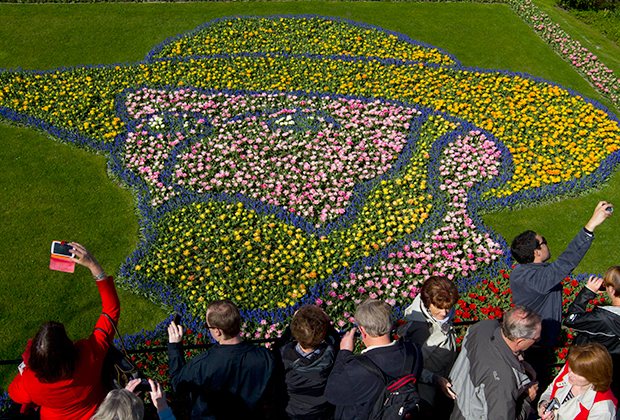
Tourists take photos in front of a floral arrangement depicting the artist Vincent Van Gogh. Keukenhof, Netherlands, April 2015
Photo: Peter Dejong/AP
In principle, I had a good life in Russia, but in Holland you feel differently. I really like it here because it is calm.
In general, all life in Europe consists of some little things that in themselves are not of great value, but together they create a wonderful overall picture. For example, with my ID (analogous to a passport), you can travel without visas throughout Europe - a small thing, but nice. Once every couple of months we try to go for a weekend somewhere to Italy, France and other countries - just to see how people live, to broaden our horizons.
Or another plus: in the house where we live now, the windows and stairs are cleaned. I used to live in Khimki, and my entrance smelled, to put it mildly, not in the best way. Even when you take out the trash here, you put the bag in a clean container, which the janitor had previously rubbed with a rag until it shined. Again, nice. I haven't seen a single big puddle here. It rains like a wall, but 20 minutes after it stops, the roads are already dry - they are made in such a magical way.
When you see where your taxes are going, they don't seem so big anymore.
Everyone here speaks English, so knowing Dutch is of no use to me. Any saleswoman in a store will understand you, unlike, say, France, where the majority speak only their own language.
The attitude towards Russians here is absolutely the same as towards people of any other nationality. There are no stereotypes or negativity. Maybe something is happening at the government level, but ordinary people are open and friendly. No one will ever ask you “what do you think about Putin”, “how is the situation in Ukraine” or something like that.
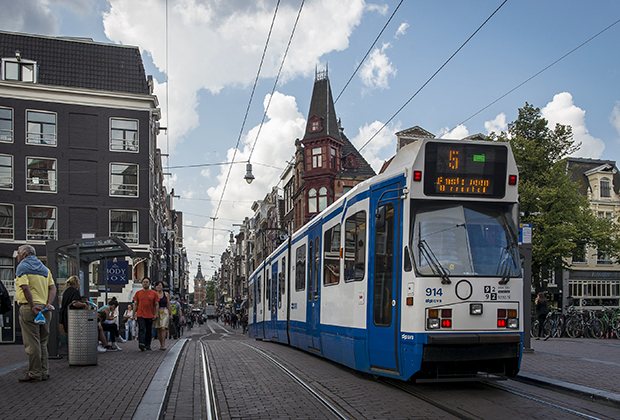
Amsterdam street
Photo: Anatoly Strunin / TASS
Here’s something else I want to note: Russian hospitality is much cooler than Dutch. Here people also smile, but still our smile is much more sincere than in Europe. Of course, it’s much nicer when you get on the bus and the driver smiles and greets you. They are always good-natured, but no one knows what they think behind their backs. You'll start to feel it when you've lived here for a while.

